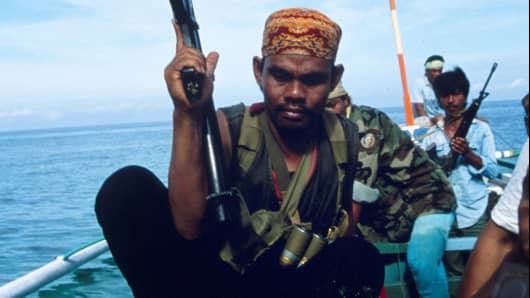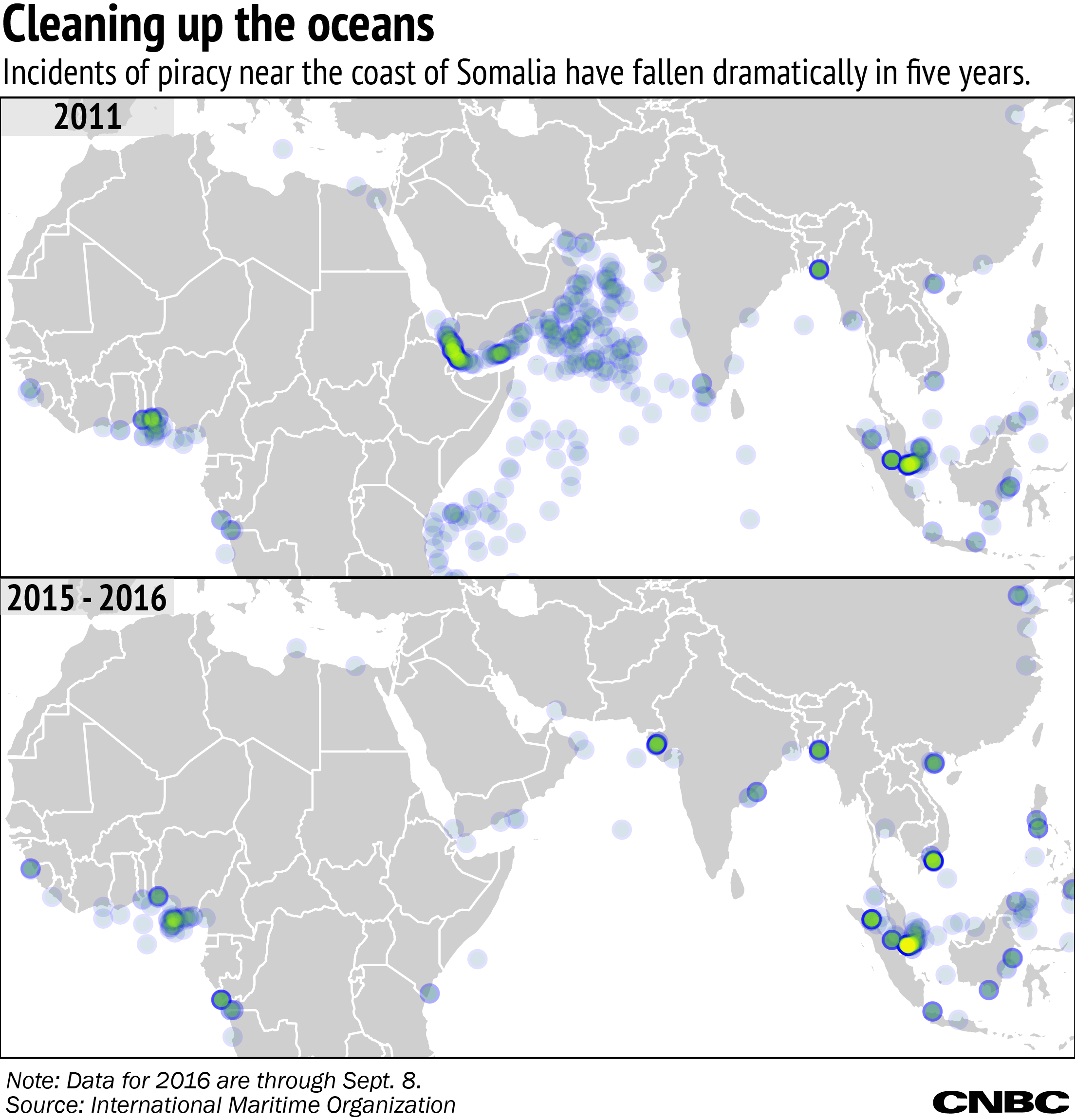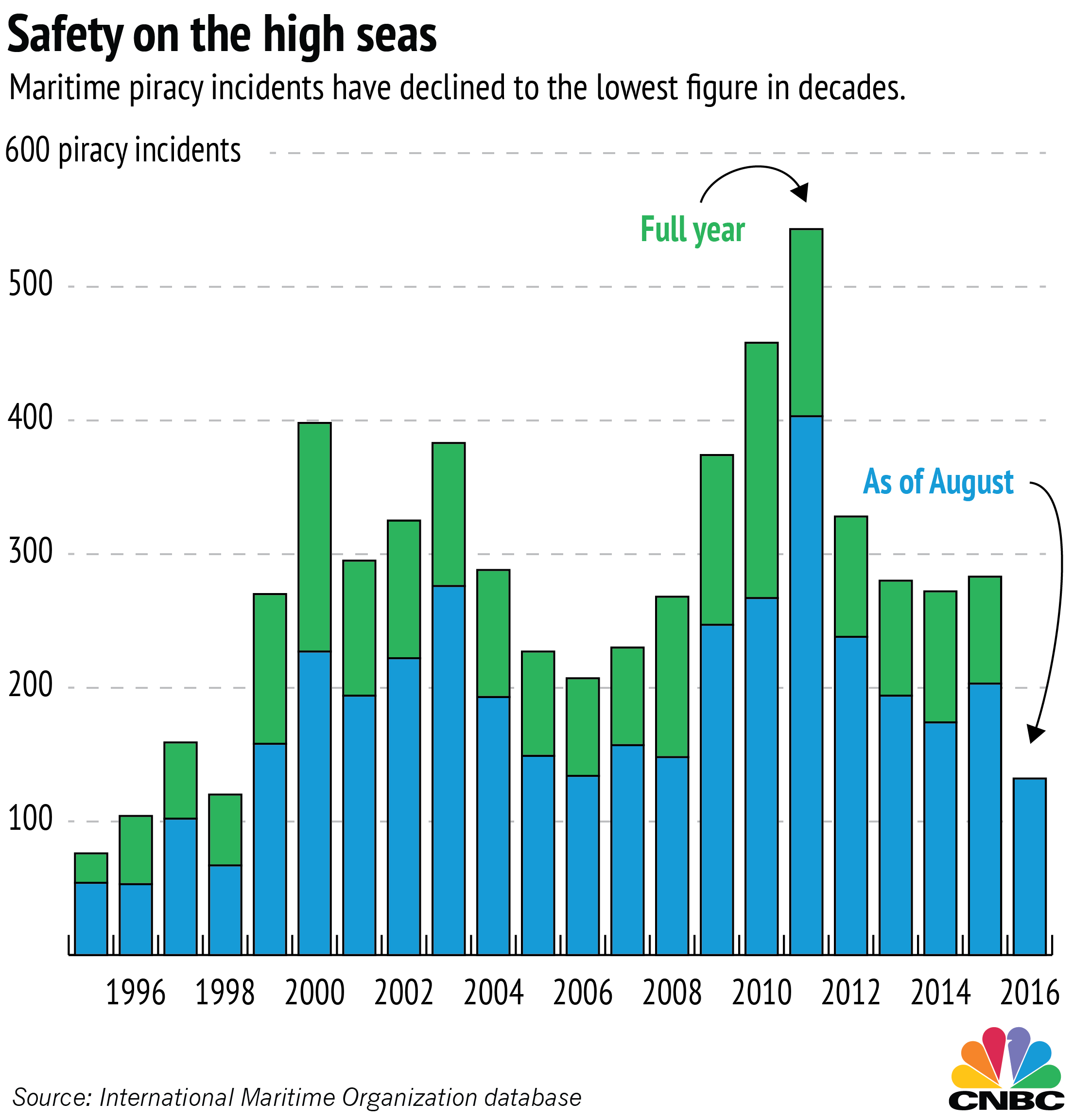Monday is "International Talk Like a Pirate Day," when thousands of people use words like "ahoy" and "matey" in their everyday speech — but it's also a good time to remember that in the real world, actual pirates cause billions of dollars in losses and dozens of deaths each year.
Fortunately, the number of piracy incidents has seen a steep decline in recent years and are at their lowest levels since the late 1990s, according to the United Nations' International Maritime Organization. And if you wanted to really talk like a pirate today, it would sound a little different from the popular Long John Silver-inspired drawl: most piracy last year took place in Asian waters, especially those around Indonesia.






